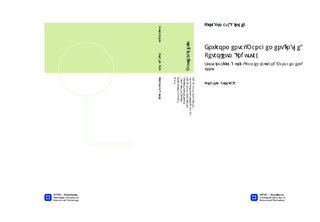Environmental Management in the Petroleum Industry: Sustainability, Global frameworks and Management tools
Abstract
The oil companies have traditionally provided the need for fossil fuels through the supply of oil and natural gas. Oil production is regarded a polluting industry and with its relatively large environmental footprint it also produces large amounts of waste that is deposited to the sea, land and water. As the known natural resources are getting exhausted, discoveries of new resources are required to fill the growing global need for energy. This is forcing the oil industry to continuously stretch existing reserves and develop new technology to get to the new oil and gas. This is seen through shallow wells drilled on land to deeper wells, the move from land to offshore, from shallow water to deep water, from normal pressures and temperatures to high temperatures and pressures; and lately into shale fracturing technologies. In order to supply the global market with oil and gas, the oil companies continuously have to explore and discover new reserves. As known reserves are depleted, the new reserves get increasingly more challenging to produce. In this way the oil industry is constantly operating on the edge of available technology. Operating in this area of technology an inherent risk of failures is increased. This can be seen through the many major accidents and disasters in the petroleum industry. In this project the main focus is on the activities and processes involved in the drilling and production of oil and gas. Risks and accidents involved with the transportation of oil are mentioned, as it is a major contributor to the total risk of the industry. Governing laws and regulations, national and international, which are meant to control the petroleum industry, are examined. Tools used to measure and compare the various company performances, such as Key Performance Indicators (KPI) and benchmarking are also mentioned. A comparison of environmental governance and management between Norway and Uganda is made in order to show the differences between industrial and developing countries of succeeding in such governance. Environmental Impact Assessment (EIA) tools are presented and methods used in assessing and managing environmental impacts are discussed. Methods of reducing the effect of unwanted impacts are identified. Life cycle perspectives as an integral part of projects are presented and highlighted through examples. The main future challenges for the petroleum industry are company culture, risk management and contingency planning.
